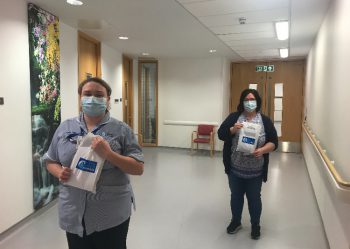23/11/2020

The Western Trust is delighted to support the first Nursing and Midwifery Support Worker Day which will be celebrated today (23 November 2020) across the UK.
This year, as part of the International Year of the Nurse and Midwife and particularly in the middle of the global COVID19 Pandemic, we need to acknowledge and celebrate our dedicated and compassionate Nursing and Midwifery Support Workers across the Western Trust area.
Brendan McGrath, Assistant Director of Nursing (Workforce Planning and Modernisation) said: “The Royal College of Nursing (NI) and Royal College of Midwifery (RCM) have identified Monday 23 November 2020 as a date to acknowledge and celebrate the essential and valuable roles of the nursing and midwifery support workers within our services. The Western Trust is delighted to celebrate the significant contribution that all of our nursing and midwifery support workers provide. They are an essential part of the Nursing and Midwifery Teams across the Western Trust and given their roles and close contact with patient and clients, play a key part in the provision of high quality care and ensuring that patients and clients have a positive experience of that care.
“Today showcases the varied and essential roles of nursing and midwifery support workers from across all of our services including Nursing Assistant, Senior Nursing Assistant and Maternity Support Workers from Acute, Community, Older People’s Services, Mental Health, Learning Disability, Physical Disability and Children’s and Maternity Services. It also acknowledges that many of these staff go on to complete pre-registration nurse education or professional social work qualifications and are an integral part of the health and social care system. This is an opportunity for us recognise the often unsung heroes for their hard work, dedication and commitment and the high standard of care they provide to patients and clients. Thank you for everything you do and for your continued support to nursing and midwifery colleagues in hospital and community care settings.”














